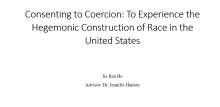A Solution to the Conflation Problem in Contemporary Virtue Ethics
This project focused on the distinction between moral and intellectual virtues, traits which, respectively, make a person morally good (kindness) or intellectually good (logicality). In it, I researched and worked to set out the structure of a paper arguing that there is good reason to believe that a distinction cannot succeed philosophically, which will be continued as an SYE in the 2025-2026 academic year.

